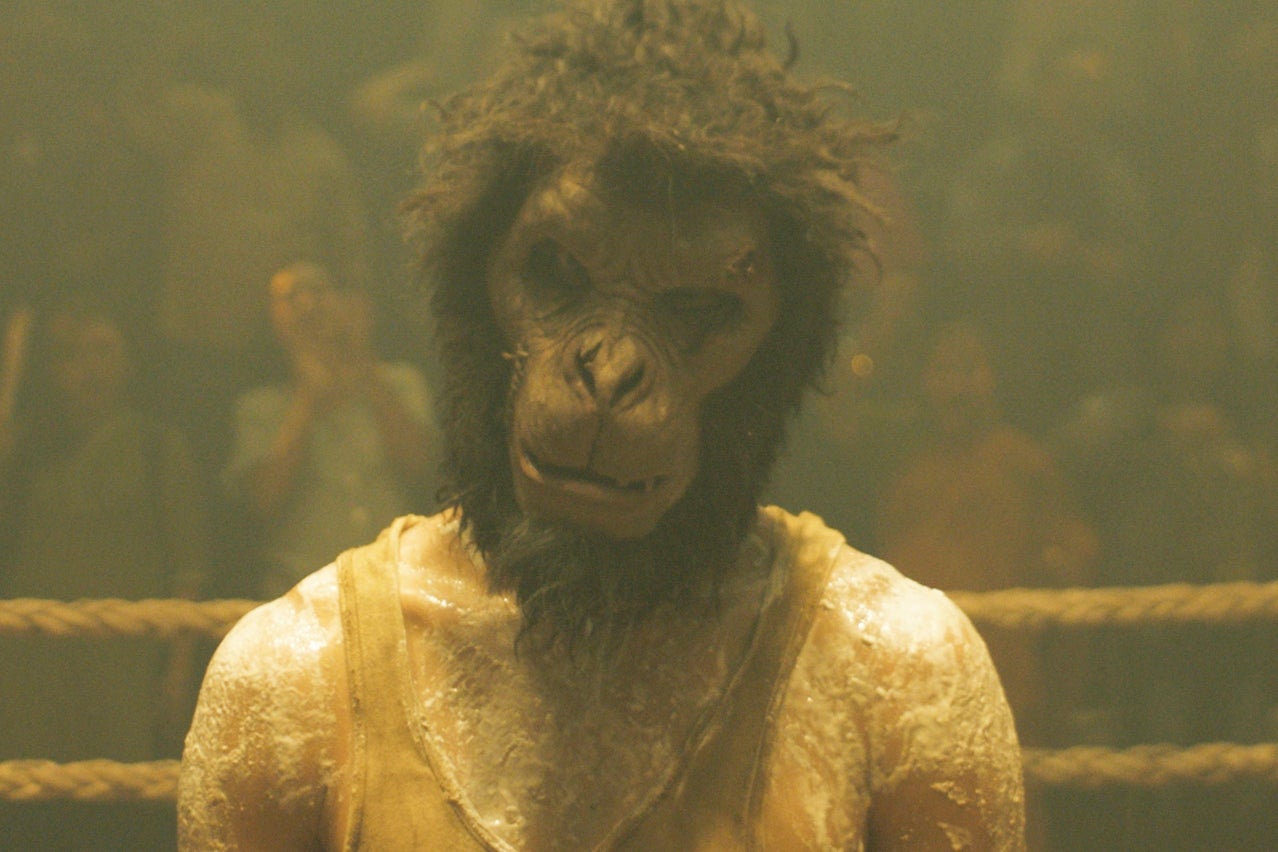Why has the India release of Dev Patel’s Monkey Man been delayed?
Highly anticipated film is likely to draw ire of nationalist groups with a ‘not exactly subtle’ portrayal of right-wing Hindus and their leader
Your support helps us to tell the story
From reproductive rights to climate change to Big Tech, The Independent is on the ground when the story is developing. Whether it's investigating the financials of Elon Musk's pro-Trump PAC or producing our latest documentary, 'The A Word', which shines a light on the American women fighting for reproductive rights, we know how important it is to parse out the facts from the messaging.
At such a critical moment in US history, we need reporters on the ground. Your donation allows us to keep sending journalists to speak to both sides of the story.
The Independent is trusted by Americans across the entire political spectrum. And unlike many other quality news outlets, we choose not to lock Americans out of our reporting and analysis with paywalls. We believe quality journalism should be available to everyone, paid for by those who can afford it.
Your support makes all the difference.The release of British actor Dev Patel’s highly anticipated directorial debut, Monkey Man, has reportedly been postponed in India amid concerns that it could fall foul of the country’s censors.
The revenge action drama premiered at South by Southwest Festival (SXSW) on 11 March. It was released theatrically worldwide on 5 April and was originally scheduled to come out in India on 19 April.
The film is set in India, and follows Patel’s unnamed character on a revenge spree against the corrupt officials of an Indian right-wing political party. The Independent’s Clarisse Loughrey gave it 4 stars as an action film with shades of John Wick and Enter the Dragon, concluding that it “deserves to be a hit”.
Yet despite Monkey Man’s mostly positive reviews, a standing ovation at SXSW and grossing $12m in its opening weekend, Indians themselves may have a while to wait to watch it.
Indian ticketing site BookMyShow no longer shows Monkey Man’s release date and Universal Studios India – Monkey Man’s distribution partner – posted a teaser on X saying it would be “in theatres soon”, with no definite date.
Reports from Indian media suggest this delay is likely because the film hasn’t yet been certified by the Central Board of Film Certification (CBFC), a government body that grants the requisite certification to any film before its release.
“The film has excessive violence and there are fears that some of its aspects might hurt the sentiments of the section of the audience. Hence, the censor process is expected to take time,” an unnamed source told film website Bollywood Hungama.
“Also, the Universal Studios team in the USA also needs to permit the changes asked by the CBFC. Once they approve, the local team will carry out the changes and only then, the team will announce the release date … A clearer picture will emerge in a week’s time, hopefully,” the source added.

Monkey Man was originally never meant to get a theatrical release. The independent feature was bought by streaming giant Netflix for $30m in 2021, which then dropped it in 2023 with no clear reason as to why. Film blog World of Reel reported that the portrayal of a “right-wing Hindu nationalist character in the film” spooked them.

Watch Apple TV+ free for 7 days
New subscribers only. £8.99/mo. after free trial. Plan auto-renews until cancelled

Watch Apple TV+ free for 7 days
New subscribers only. £8.99/mo. after free trial. Plan auto-renews until cancelled
In January 2024, Netflix was forced to pull Annapoorani: the Goddess of Food after several right-wing Hindu groups complained that the main character was shown eating meat. The film, which was made in the southern Indian state of Tamil Nadu, followed a young woman from the Brahmin caste, which does not traditionally eat meat. The film also received criticism that it promoted “love jihad”, an unproven conspiracy theory propagated by Hindu right-wing groups that claims Muslim men marry Hindu women in order to convert them to Islam.
After Netflix dropped Monkey Man, it was picked up by Get Out director Jordan Peele, who convinced Universal Pictures to buy and distribute the film.
“I first saw a cut of Monkey Man about eight months ago and I instantly knew it was a classic,” Peele told TheWrap.
“I’ve been a fan of Dev’s for a while, but I was instantly blown away by the cinematic generosity of his film. I watched it alone but could hear the audience’s reactions in my head. I knew the movie demanded a theatrical run.”

After the film’s premiere at SXSW, commentators on X noted that the flags and posters associated with the villain’s political party had changed from saffron-coloured in the movie’s first trailer to red in the second trailer. Saffron is often associated with right-wing Hindu nationalist movements or Hindutva groups in India, and is the colour used by Narendra Modi’s ruling Bharatiya Janata Party. While Universal has not commented on or confirmed the change, many online have speculated that it was done to pre-empt and minimise outrage in India.
Bollywood film Pathaan came under fire in 2023 because Deepika Padukone’s character wore a saffron bikini. The home minister of India’s Madhya Pradesh state, Narottam Mishra, said he objected to “the way saffron and green colours have been used” in the film.
Self-censorship to cater to a film’s international markets is not a new concept. The 2012 remake of action film Red Dawn changed its antagonists’ nationalities from Chinese to North Korean in post production to appease the Chinese market. In 2013, Marvel changed the originally Chinese villain Mandarin’s nationality in Iron Man 3 by casting British actor Ben Kingsley.
A 2023 report in The Washington Post showed that streaming platforms Netflix and Amazon Prime Video dropped multiple projects to appease the Indian government and there was pressure on Indian creators to remove any “reference to religion that might offend the Hindu right wing or the BJP”

A review of Monkey Man in The New Statesman says: “Monkey Man’s critique of an extremely popular dictator who has managed to weaponise Hinduism is not exactly subtle”, a description that most critics have echoed, while also pointing out the self-censorship embedded within that portrayal.
Patel’s character derives strength from the Hindu ape-god Hanuman to wreak vengeance on those who attacked his village, and even uses real news footage from demonstrations against India’s Modi-led government – though it removes the context from said protests.
In an Ask Me Anything Q&A on Reddit, Patel describes Monkey Man as being “about the marginalised – the underdogs – all lifting each other up to achieve a justice that was only meant for the privileged”.



Join our commenting forum
Join thought-provoking conversations, follow other Independent readers and see their replies
Comments